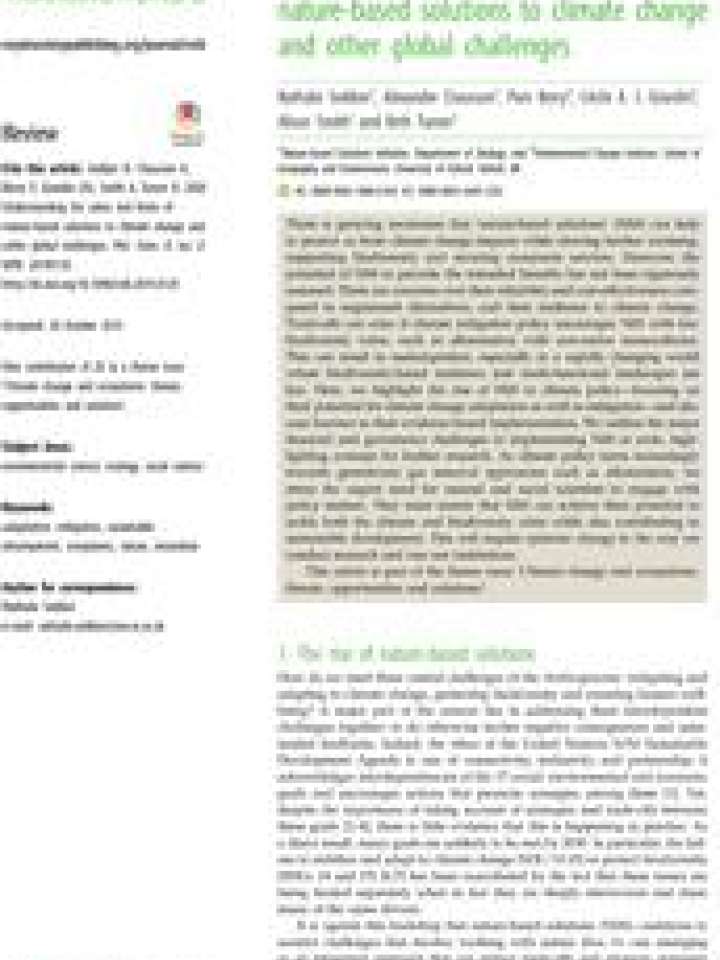Understanding the value and limits of nature-based solutions to climate change and other global challenges
There is growing awareness that ‘nature-based solutions' (NbS) can help to protect us from climate change impacts while slowing further warming, supporting biodiversity and securing ecosystem services. However, the potential of NbS to provide the intended benefits has not been rigorously assessed. There are concerns over their reliability and cost-effectiveness compared to engineered alternatives, and their resilience to climate change. Trade-offs can arise if climate mitigation policy encourages NbS with low biodiversity value, such as afforestation with non-native monocultures. This can result in maladaptation, especially in a rapidly changing world where biodiversity-based resilience and multi-functional landscapes are key. Here, the study highlights the rise of NbS in climate policy—focusing on their potential for climate change adaptation as well as mitigation—and discuss barriers to their evidence-based implementation. The research outlines the major financial and governance challenges to implementing NbS at scale, highlighting avenues for further research. As climate policy turns increasingly towards greenhouse gas removal approaches such as afforestation, it is stressed the urgent need for natural and social scientists to engage with policy makers. They must ensure that NbS can achieve their potential to tackle both the climate and biodiversity crisis while also contributing to sustainable development. This will require systemic change in the way researches are conducted.
Explore further

